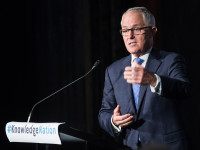With yesterday’s leak of the
full ACTA text (updated to include the recent round of talks in Lucerne) the simmering fight between the U.S. and the E.U. on ACTA is now being played out in the open. During the first two years of negotations, both sides were at pains to indicate that there was no consensus on transparency and the treaty would not change their domestic rules. Over the past four months, the dynamic on both transparency and substance has changed.
The turning point on transparency came as a result of two events in February and March. First, a Dutch government document leak that identified which specific countries were barriers to transparency. Once identified, the named European countries quickly came onside to support release of the text, leaving the U.S. as the obvious source of the problem. Second, the European Parliament became actively engaged in the ACTA process and demanded greater transparency. As the New Zealand round approached, it was clear that the Europeans needed a resolution on transparency. The U.S. delegation used the transparency issue as a bargaining chip, issuing a release at the start of the talks that it hoped that enough progress could be made to allow for consensus on sharing the text. The U.S. ultimately agreed to release the text, but subsequent events indicate that it still views transparency as a bargaining chip, rather than as a commitment.
At the conclusion of the latest round of negotiations in Lucerne, the U.S. did not achieve its goals for the talks and refused to agree to the release of an updated text. The disagreement between the U.S. and E.U. has played out in the open this week, with the USTR’s Stan McCoy acknowledging that the talks did not achieve as much as the U.S. hoped and EU Commissioner Karel de Gucht plainly blaming the U.S. for blocking release of the text, indicating that he did not expect much progress in the next round on talks in Washington, and calling out the U.S. for its “hypocrisy” on key issues. The fact the text was leaked within hours of de Gucht’s comments highlight Europe’s frustration with the U.S. position on transparency.
Read more ›







